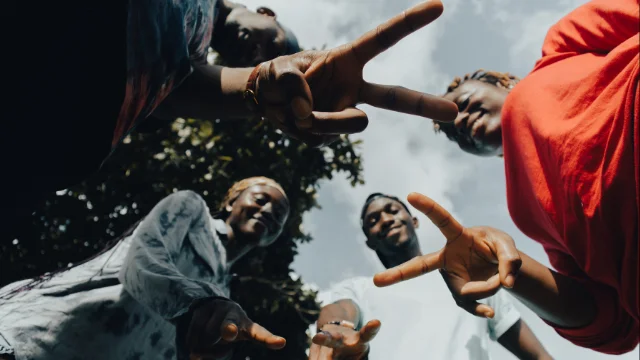
By Banoyolo Sicwebu
On 25 May, Rhodes University joined the rest of the continent in the commemoration of Africa Day. The University’s Institute for Social and Economic Research (ISER) hosted co-authors Professor Emeritus Valerie M?ller (ISER, Rhodes University) and Dr Benjamin Roberts (DCES, HSRC) to present a seminar on their new book titled: “Quality of life and human well-being in sub-Saharan Africa”. The book aims to guide and assist policymakers by retracing much of Africa’s untold stories.
The book has been split into three different sections which offer different perspectives to the reader. The first section of the book retraces the undocumented African history, the second section documents the success story of the African age and the third section looks to foretell the new African dawn.
M?ller explained how Africa’s history was shared orally or stored in ancient fossils or monuments in stones. She said the history of Africa was not written by native Africans, but instead by travelling explorers, missionaries and colonist administrators. “The book attempts to accurately retrace and document our history. From the early 1960s the book elaborates on African history such as the scramble for Africa which divided ethnicities, languages and landlocked countries,” she said.
Additionally, the book on sub-Saharan Africa does not shy away from the many challenges Africa has faced in its history. It talks about challenges to democracy due to colonisation and apartheid (which is what the African Union was established to thwart), poverty, famine, illiteracy and slavery. “The book aims to accurately account for the events in African history and the impact of the challenges in Africa. For example, due to slavery Africa was stripped of labour that may have aided its growth,” said Roberts.
The book acknowledges the rise in adult literacy levels in Africa. Rising from a low 3% in the first year of estimate in the 1960s to an impressive 66% in more recent years. “Africa is certainly on the rise, and the time may be ripe for a new African dawn,” added Roberts.
In its third and last section, the book focuses on the youth, viewing the youth as Africa’s greatest resource in a better tomorrow. Depicting the power of the youth by their contribution to protests, such as the protests in 2011 which rippled through the continent and forced 27 African countries to disable the internet an astounding 54 times. The book credits the youth’s use of social media to combat relevant social injustices in Africa.
M?ller said freedom from poverty is just as important as political freedom was in Africa during colonisation. “The youth of Africa have displayed no hesitancy in emigrating and moving to seek employment and/or educational opportunities. They display a strong sense of bravery and commitment to moving to greener pastures. These members of the youth also assist their countries by improving their skill capacity and offering these skills back to their countries,” concluded M?ller.
In-person and online seminar attendees received a free electronic copy of the book.
Moller, V. and Roberts, B. 2021. Quality of Life and Human Well-Being in Sub-Saharan Africa: Prospects for Future Happiness. Springer Nature, Switzerland.
[https://www.springer.com/series/15692]

